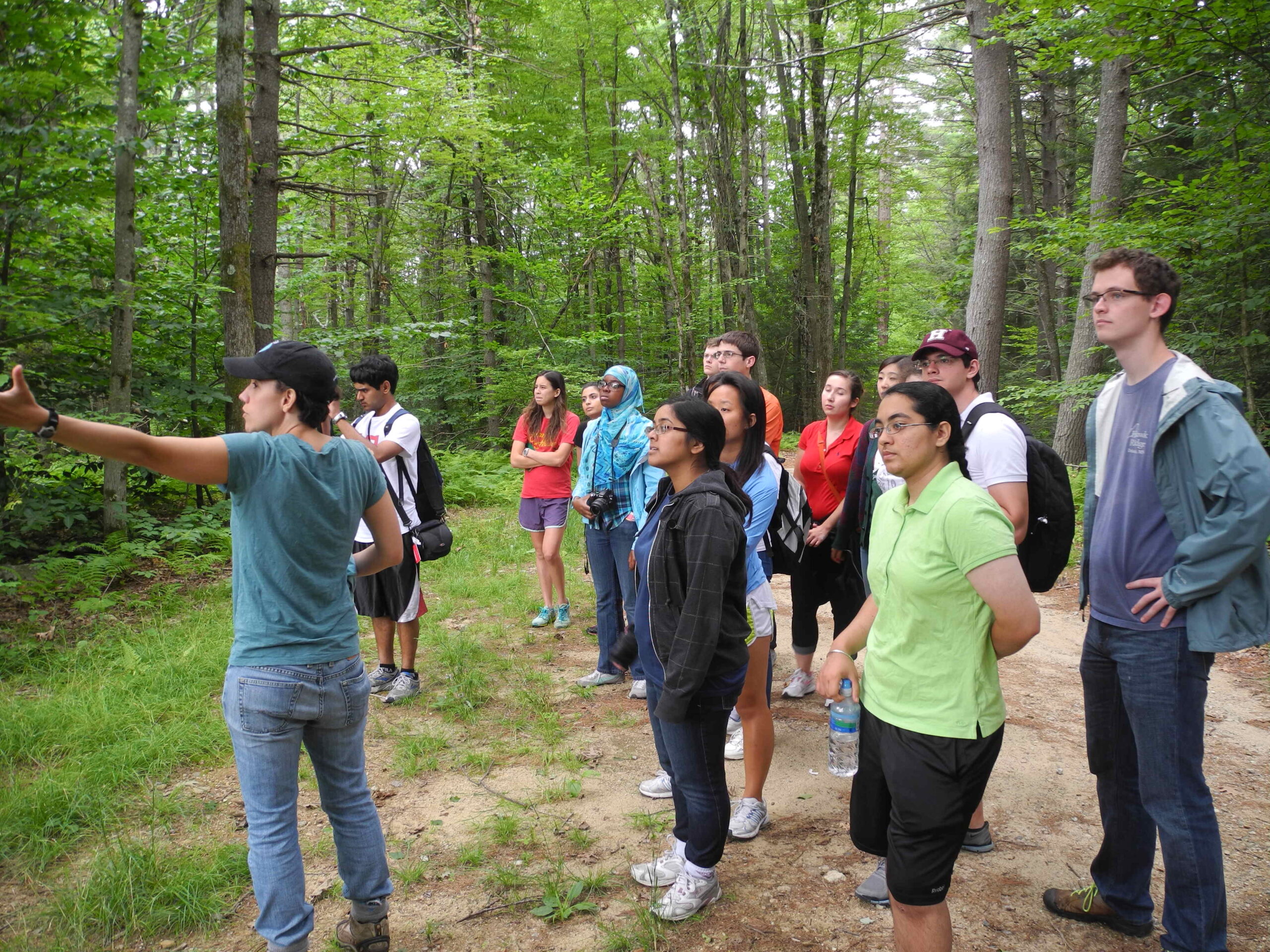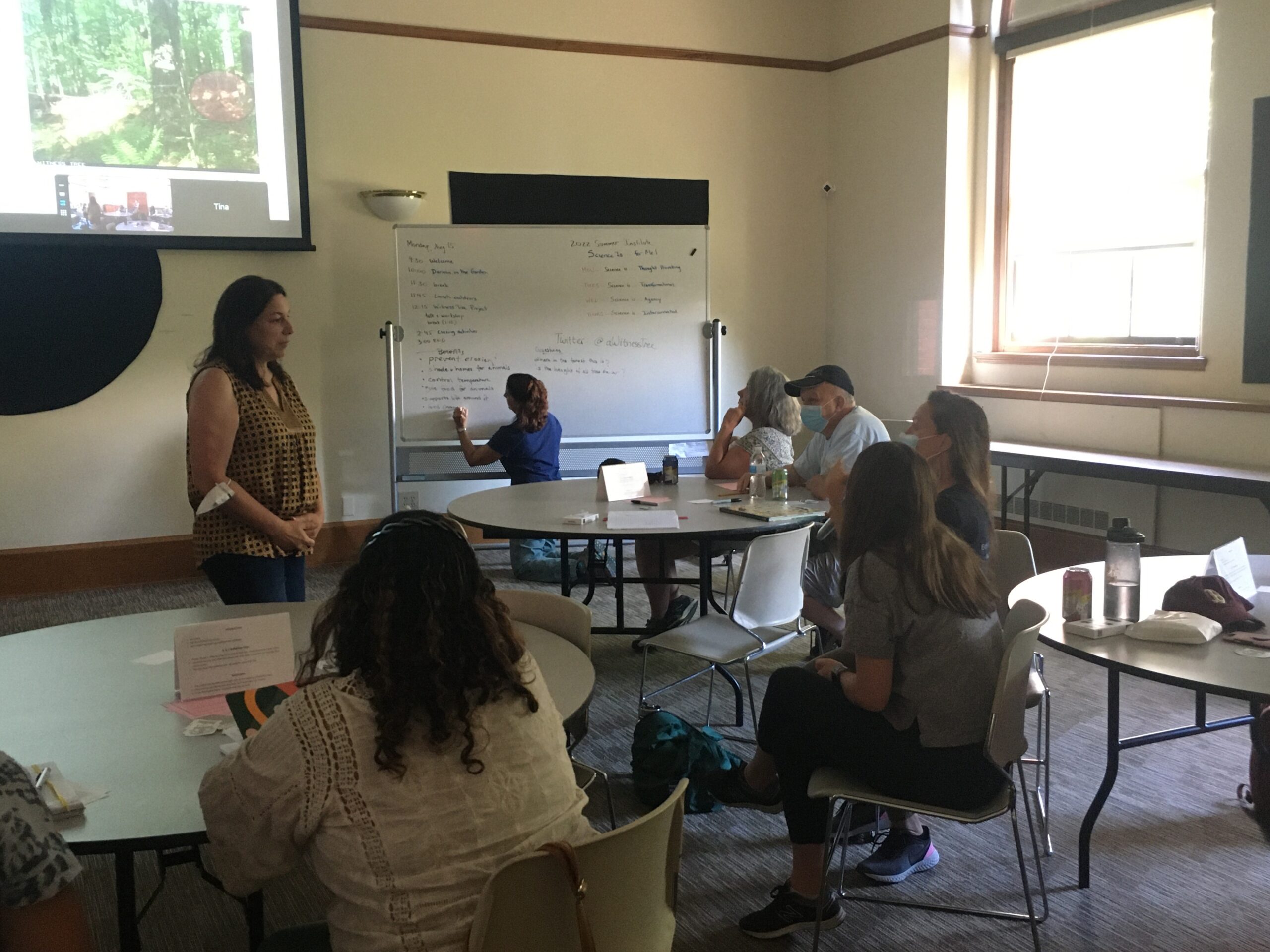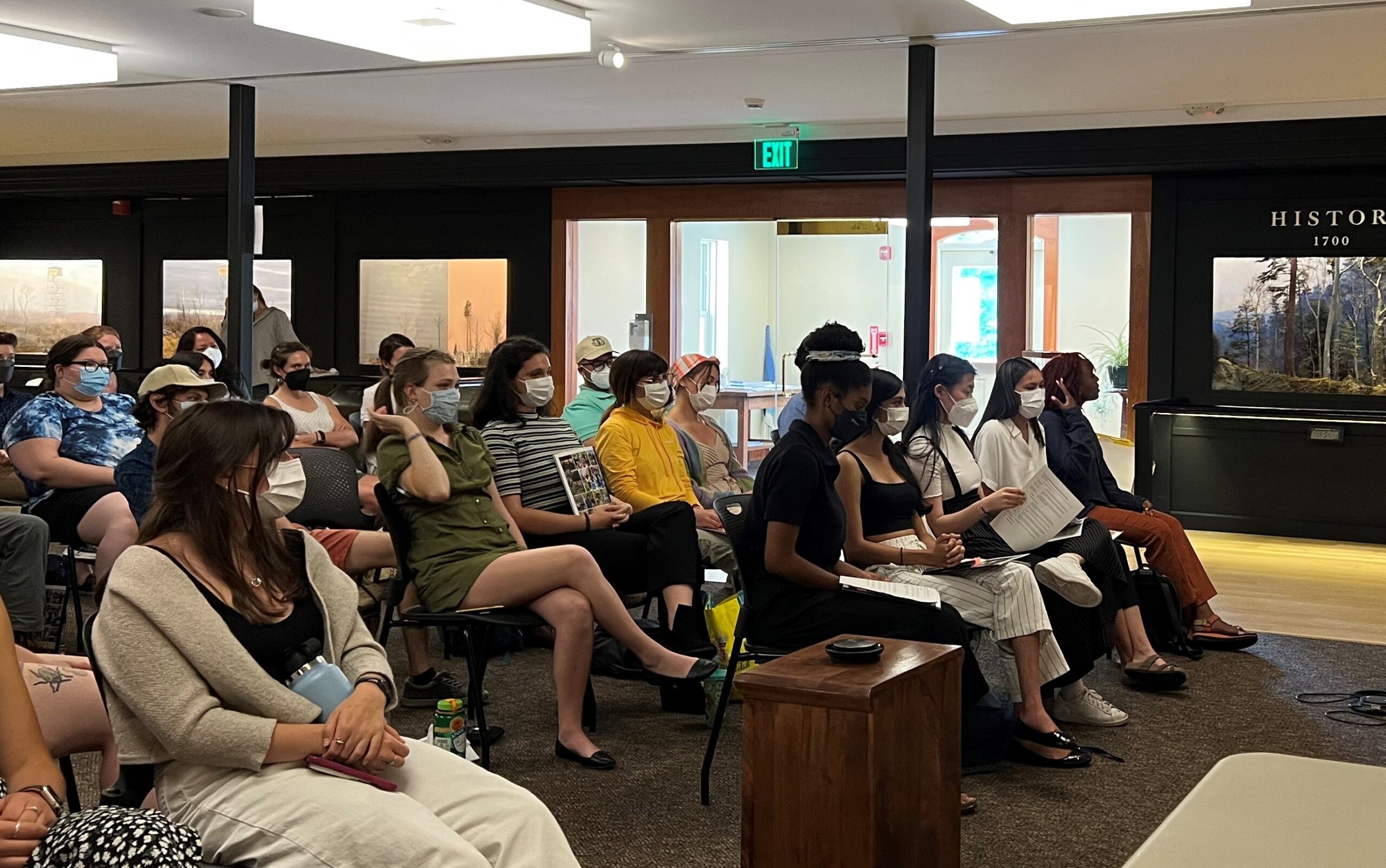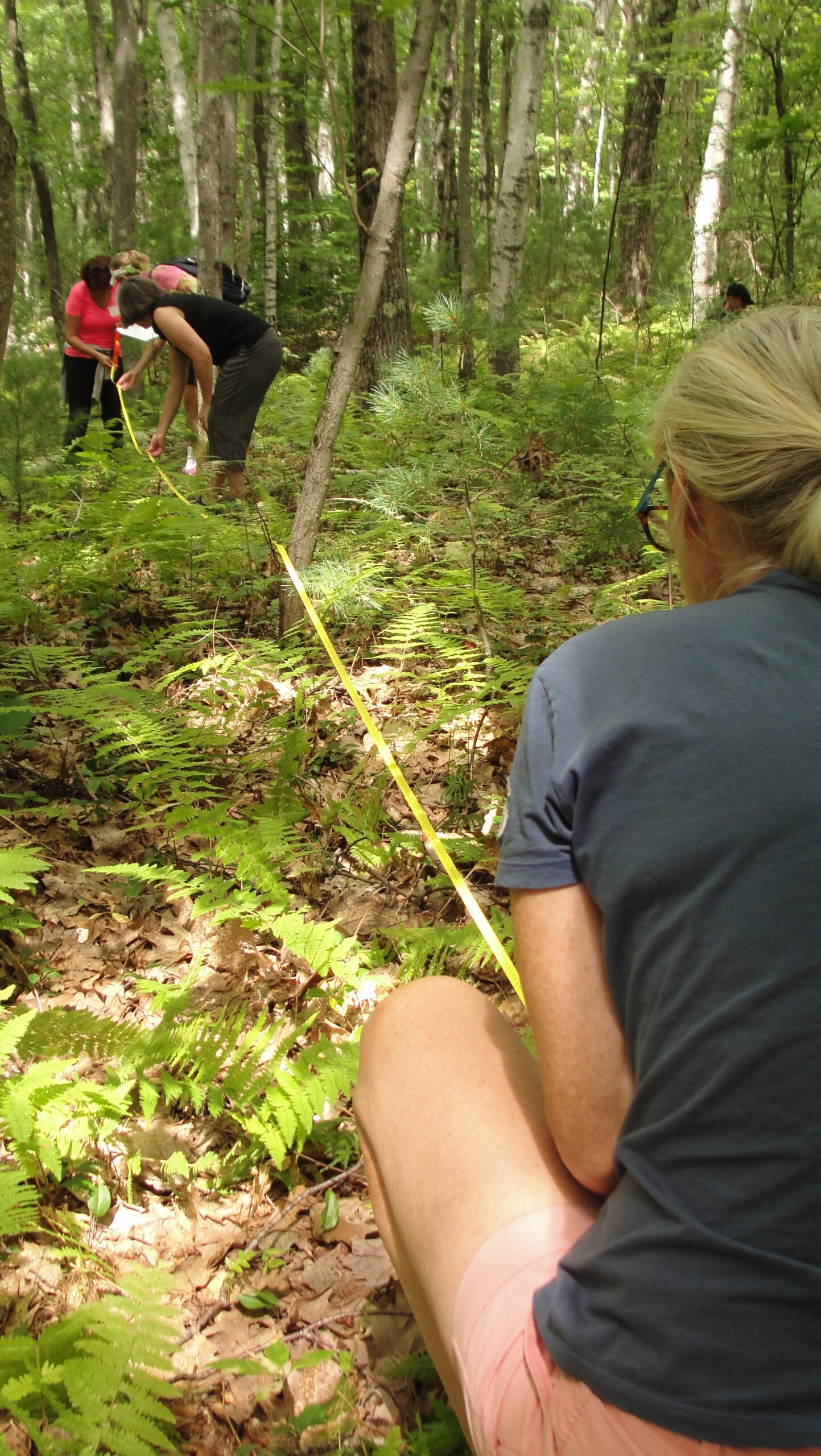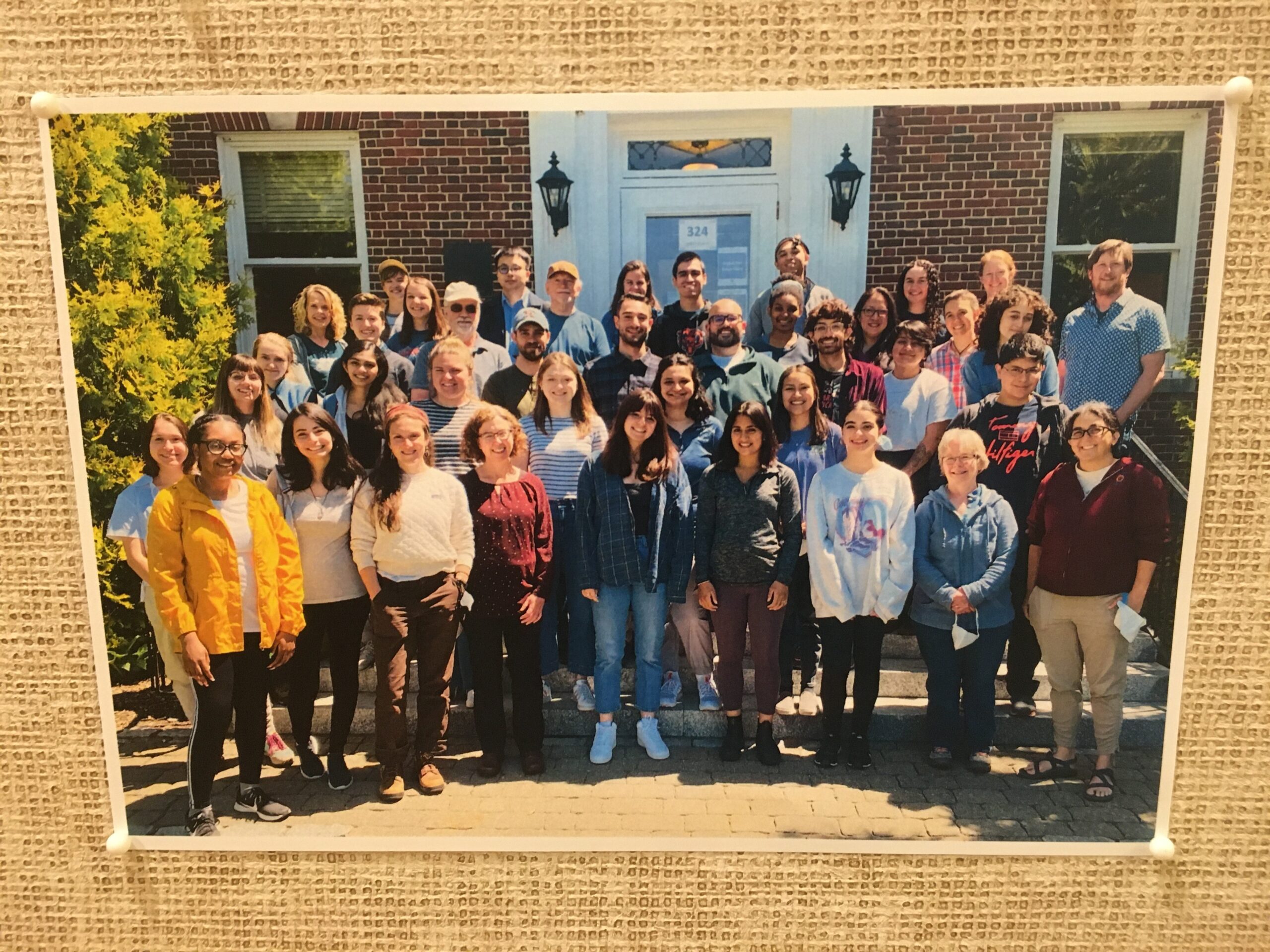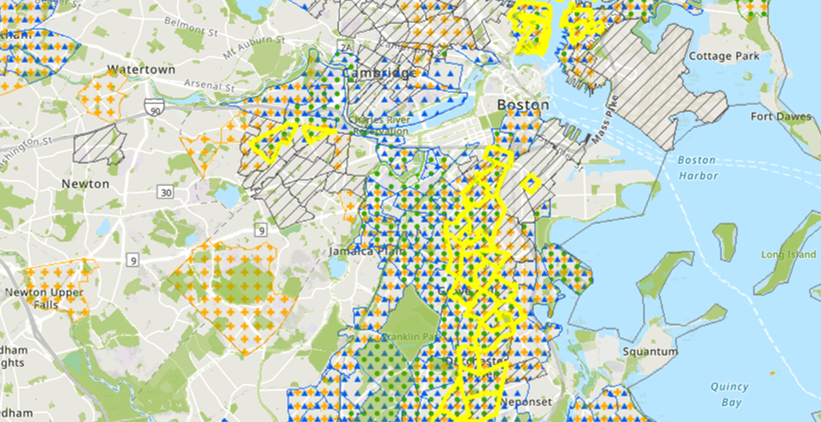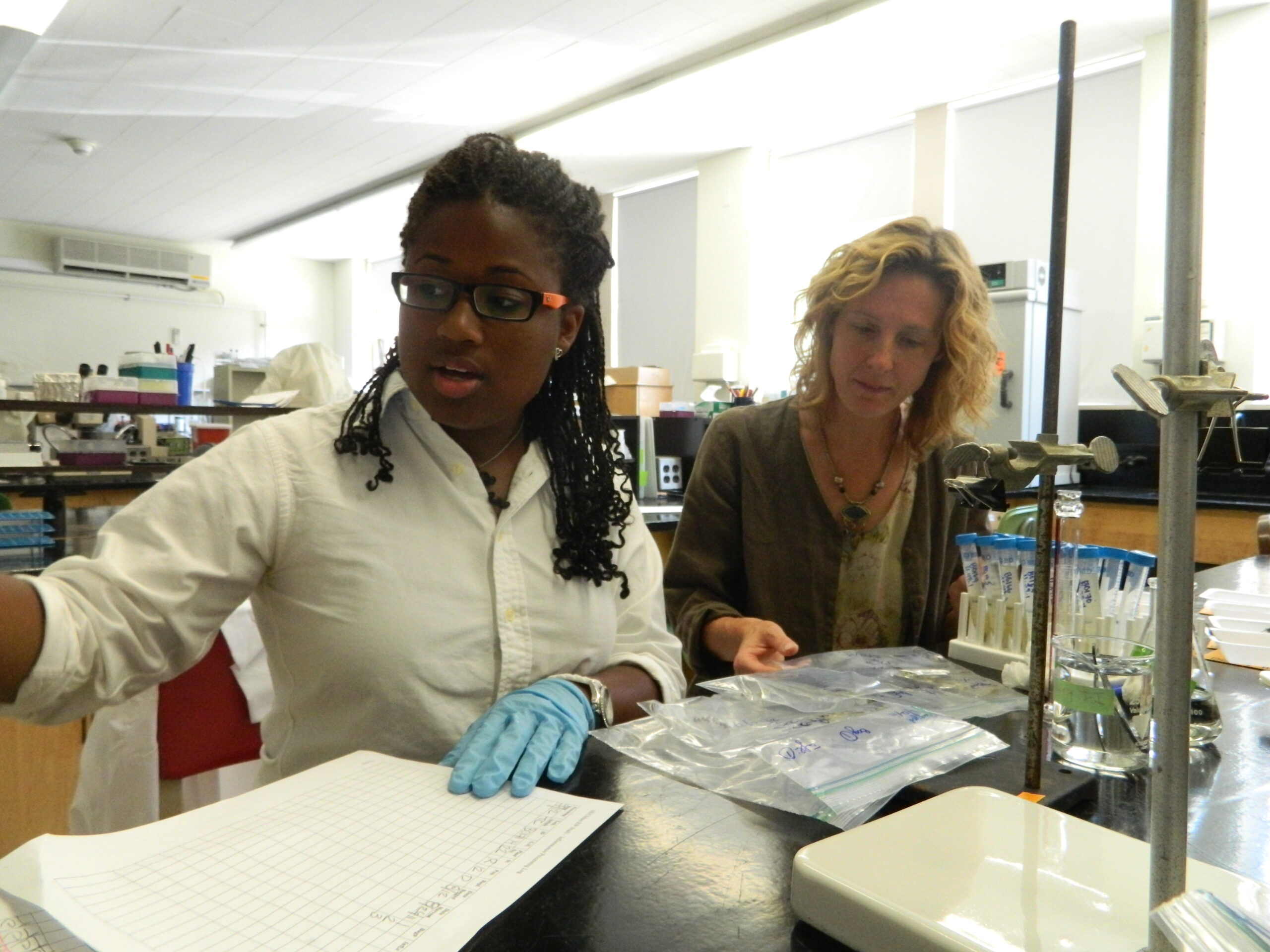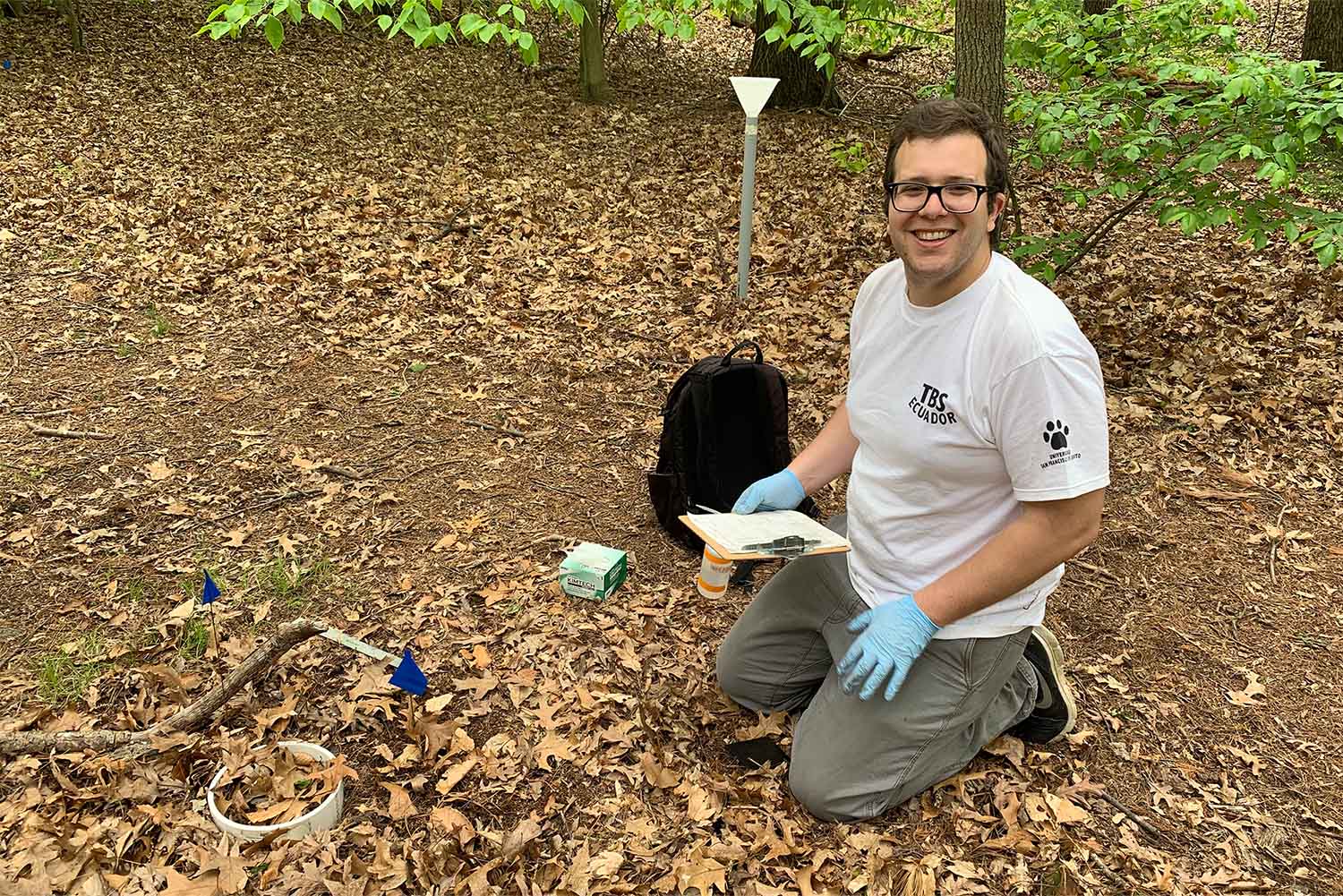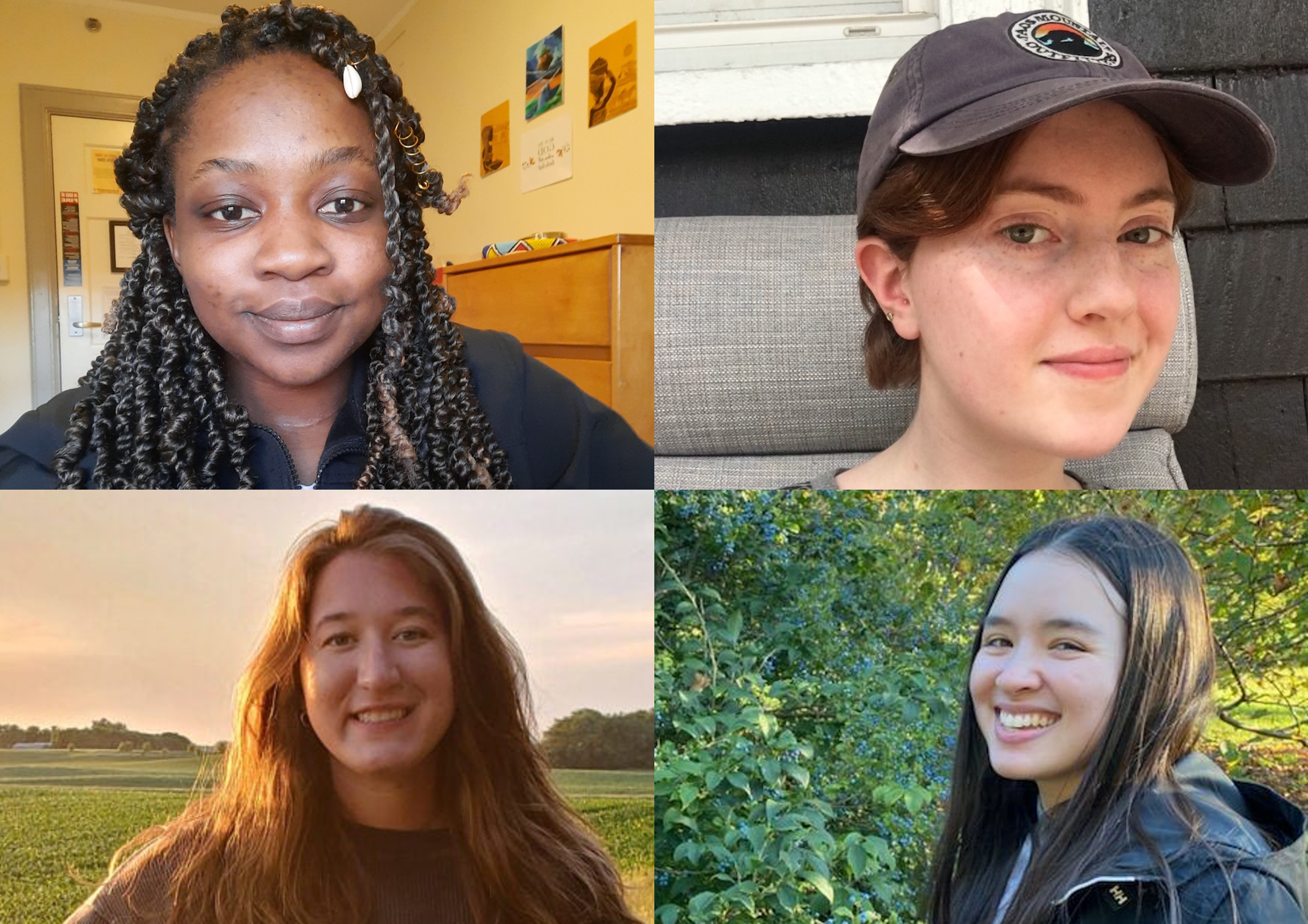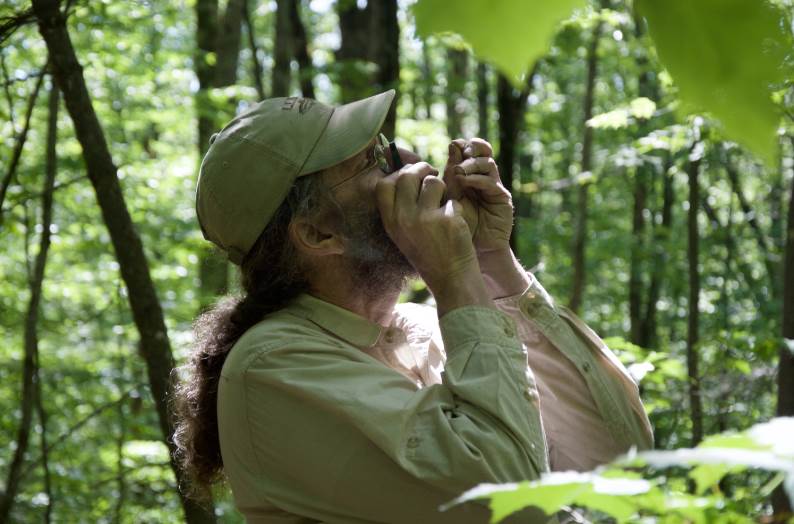**Note: Registration for academic-year 2023-2024 community bus trips is now closed. Looking for info on 2024-2025 trips? Find it here!**
Harvard students, faculty, fellows, and staff may sign up for one of several free monthly bus trips to visit Harvard Forest, located 70 miles west of Harvard Square.
Trips will be geared towards undergraduate and graduate students; faculty, fellows, and staff are also welcome to sign up. There is no cost.
The 4 hours spent on site will be guided by educators and scientists at the Forest, including:
- an overview of Harvard Forest’s interdisciplinary research and education programs
- a brief, interactive tour of the Fisher Museum
- a ~2-mile guided field walk:
- explore several of the Forest’s signature climate research experiments
- optional: weather-permitting, climb a 92′ research tower
- learn local plant and wildlife ID
- discuss the Nipmuc and colonial history of the region
- discuss modern efforts in climate policy, land management, environmental education, and Indigenous community collaboration
Bus trips will depart Harvard Square at 10:00am and return to campus by 6:00pm. Attendees must bring their own lunch and snacks; Harvard Forest is a rural area and there is no way to purchase food or drinks here.
Registration is first-come, first-served, except that new visitors will be prioritized over return visitors. Trips fill quickly, and we will keep a wait-list.
Fill out a brief survey to request registration for your preferred date:
Shortly after you fill out the form, we will send an email to confirm your registration status. In severely inclement weather, the trip will be canceled, and we will notify you ASAP.
Funding for this program – which provided monthly trips in 2022-2023 – is provided by the Harvard FAS Community Renewal Fund.
The Harvard Forest welcomes individuals with disabilities to participate in its programs and activities. Learn more about accessibility at the Forest here. If you require visitor accommodations or assistance with trail accessibility, please contact hfvisit@fas.harvard.edu or 978-724-3302, preferably at least two weeks before your visit.
Please note that we recognize the inequity of offering these trips mostly on Saturdays, which excludes some community members. In future years we will seek to work with our transportation vendor to offer Sundays, as well. If you have other suggestions about how we can make these trips more equitable, please let us know at hfOutreach@fas.harvard.edu.
We look forward to seeing you at the Forest!
